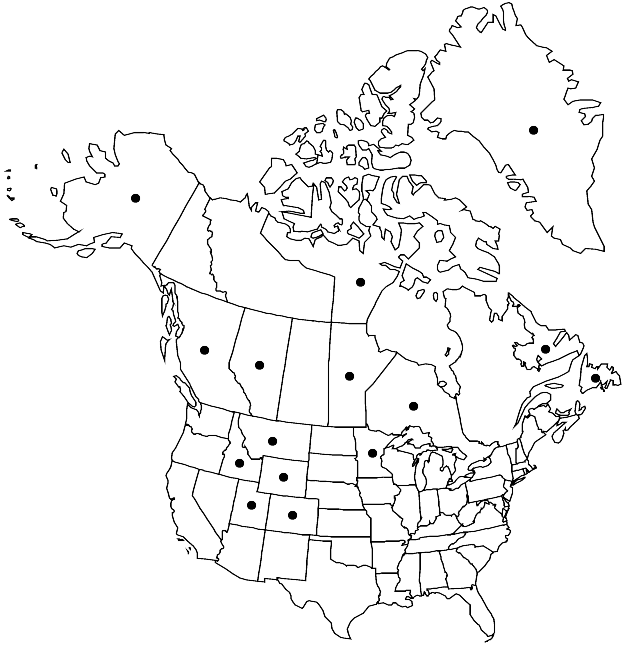Difference between revisions of "Pseudoleskeella rupestris"
Lindbergia 17: 64. 1992.
FNA>Volume Importer |
FNA>Volume Importer |
||
| Line 10: | Line 10: | ||
|name=Leskea rupestris | |name=Leskea rupestris | ||
|authority=Berggren | |authority=Berggren | ||
| + | |rank=species | ||
|publication_title=Acta Univ. Lund. | |publication_title=Acta Univ. Lund. | ||
|publication_place=3(7): 9, figs. 10 – 13. 1866 | |publication_place=3(7): 9, figs. 10 – 13. 1866 | ||
| Line 16: | Line 17: | ||
|name=Leskeella nervosa var. sibirica | |name=Leskeella nervosa var. sibirica | ||
|authority=(Arnell) E. Lawton | |authority=(Arnell) E. Lawton | ||
| + | |rank=variety | ||
}} {{Treatment/ID/Synonym | }} {{Treatment/ID/Synonym | ||
|name=Pseudoleskeella sibirica | |name=Pseudoleskeella sibirica | ||
| − | |authority= | + | |authority= |
| + | |rank=species | ||
}} | }} | ||
|hierarchy=Leskeaceae;Pseudoleskeella;Pseudoleskeella rupestris | |hierarchy=Leskeaceae;Pseudoleskeella;Pseudoleskeella rupestris | ||
| Line 43: | Line 46: | ||
-->{{#Taxon: | -->{{#Taxon: | ||
name=Pseudoleskeella rupestris | name=Pseudoleskeella rupestris | ||
| − | |||
|authority=(Berggren) Hedenas & L. Soderström | |authority=(Berggren) Hedenas & L. Soderström | ||
|rank=species | |rank=species | ||
| Line 58: | Line 60: | ||
|publication year=1992 | |publication year=1992 | ||
|special status= | |special status= | ||
| − | |source xml=https://jpend@bitbucket.org/aafc-mbb/fna-data-curation.git/src/ | + | |source xml=https://jpend@bitbucket.org/aafc-mbb/fna-data-curation.git/src/f50eec43f223ca0e34566be0b046453a0960e173/coarse_grained_fna_xml/V28/V28_570.xml |
|genus=Pseudoleskeella | |genus=Pseudoleskeella | ||
|species=Pseudoleskeella rupestris | |species=Pseudoleskeella rupestris | ||
Revision as of 21:15, 16 December 2019
Plants green, red-green, or orange-green. Stems somewhat loosely appressed to substrate, branches curved to erect. Stem leaves not catenulate when dry, not homomallous, broadly lanceolate to ovate-lanceolate, gradually narrowed to apex, not or weakly concave, not plicate, 0.5–1.5 mm, 3:1; base not flaring or cordate; margins plane or weakly recurved, entire or weakly serrulate distally; apex short-acuminate, not falcate; costa usually single, rarely 2-fid near tip, strong, to mid leaf or into acumen, somewhat flared in acumen; medial laminal cells 2–3:1, walls incrassate. Branch leaves ovate-lanceolate, 0.5–1.2 mm; laminal cell walls thin. Stoloniferous leaves broadly ovate-lanceolate to ovate. [Seta brown or red-brown, 0.1–0.3 cm. Capsule erect, cylindric, symmetric, 2–3 mm. Spores 8–12 µm].
Phenology: Capsule maturity unknown.
Habitat: Dry shaded calcareous rock
Elevation: low to high elevations (0-3000 m)
Distribution

Greenland, Alta., B.C., Man., Nfld. and Labr., Nunavut, Ont., Alaska, Colo., Idaho, Minn., Mont., Utah, Wyo., w, n Europe.
Discussion
Pseudoleskeella rupestris is similar to Leskeella nervosa, and should probably be included in that genus. According to W. A. Weber and R. C. Wittmann (2007), plants of P. rupestris from Colorado bear clustered flagelliform branchlets in axils of distal secondary branch leaves, a characteristic trait of L. nervosa. The leaves are irregularly twisted when dry.
Selected References
None.